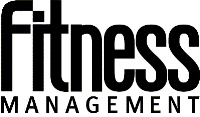
The tax-exempt status of non-profit fitness centers is the subject of a long-standing debate in the fitness industry. It hasn’t always taken center stage but, thanks to the current economy, that seems to be changing.
Now, the spotlight is shining brightly on non-profit fitness centers as states and cities explore new ways to get desperately needed funds.
Winchester, Va., is considering
taxing hospital fitness centers.
The State of North Dakota
tried to pass a bill that would allow levy property taxes on some nonprofit organizations, including YMCAs. The bill failed, but some lawmakers are still pushing to tax those businesses for police and fire protection.
Local governments are cutting or reducing funding. Bar Harbor, Maine,
slashed taxpayer funding by $41,000 for the
Mount Desert Island YMCA. Instead of getting $56,800 from the city, the YMCA will now receive $15,000.
Some will call this an overdue leveling of the playing field. Others will call it a devastating blow to communities and under-served populations. The debate will continue, and we can expect that scrutiny of some businesses’ tax-exempt status will only intensify.
We won’t all make it through to the other side of this recession. But those who do — for-profits and non-profits alike — will likely be faced with a new industry landscape. It's anyone's guess which fitness businesses will be in the spotlight then.




